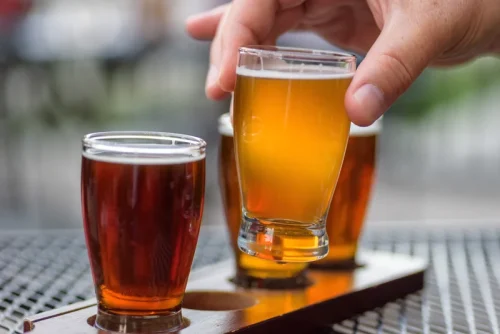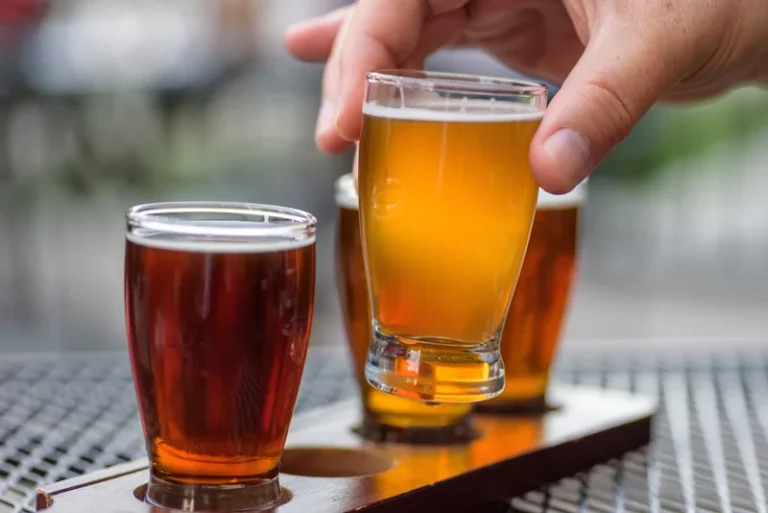
Alcoholism, also known as alcohol use disorder (AUD), can be influenced by various risk factors. These factors may increase an individual’s susceptibility to developing alcoholism. It’s important to note that the presence of these risk factors does not necessarily mean a person will develop alcoholism, but they can contribute to the likelihood. Looking at the symptoms mentioned above can give you an idea of how your drinking may fall into harmful patterns and indicate whether or not you have a drinking problem. Outpatient treatment allows you to live a normal life while attending planned addiction treatment sessions. This approach is recommended for moderate alcohol addiction, sometimes following inpatient treatment.
Alcohol Use Disorder: From Risk to Diagnosis to Recovery

AUD, on the other hand, is a formal condition your physician can diagnose you with. Our team of addiction medicine experts are compassionate and committed to making addiction treatment accessible, understandable, and affordable. Substance abuse can result when the pattern of drinking damages the drinker’s health, relationships, or work.

Alcohol Withdrawal Symptoms
But alcohol misuse, also known as excessive drinking, has a more immediate impact, whereas the symptoms of AUD will be more prolonged. Drinking alcohol too much or too often, or being unable to control alcohol consumption, can be a sign of alcohol misuse and, in some cases, alcohol use disorder (AUD). Some researchers have suggested that the effects of psychotherapy may account for some of the pill placebo response observed in medication studies. The stigma that still surrounds alcohol issues can make it difficult for people to admit they have a problem. Plus, it’s not always easy to spot the signs.But recovery is possible, even for people with more severe disorders. Alcoholism is a layman’s term and not a clinical term used in medical diagnosis.
Problem Drinking vs. Alcoholism
- Your doctor may screen you for this condition by asking you questions about your drinking habits, including how much and how often you drink and whether or not you feel drinking alcohol has interfered with your life negatively.
- This article discusses alcohol dependence, alcohol abuse, and the key differences between them.
- Many genes contribute to this risk, with most of those genes making only very small contributions to the overall risk.
- A new study suggests that asking women to recall a recent drinking experience, particularly with a focus on calorie consumption, can reduce their desire to drink alcoholic beverages.
- Binge drinking is a pattern of alcohol abuse in which a person quickly consumes a lot of alcohol.
Binge drinking is a pattern of alcohol abuse in which a person quickly consumes a lot of alcohol. Alcohol abuse, also called problem drinking, occurs when drinking alcohol becomes an issue that creates negative consequences for a person. Many people with AUD continue to drink even as they develop health problems related to drinking. Over the long term, AUD may lead to serious health conditions, while worsening others.
Stopping does not come from an internal realization that they have had enough. Alcoholism, a chronic disease characterized by a loss of control over drinking and changes in brain regions, necessitates comprehensive treatment approaches. Recent advancements in understanding the molecular targets for alcohol use disorder (AUD) have led to the development of innovative pharmacological treatments. These include medications like aripiprazole, which affects dopamine and serotonin receptors, alpha-1 blockers such as prazosin and doxazosin, and neurokinin-1 antagonists. Other promising pharmacological approaches involve glucocorticoid receptor blockers, vasopressin receptor 1b antagonism, and oxytocin, among others. This is a chronic, lifelong disease in which the body is physically dependent on alcohol in order to feel “normal”.
Alcohol Abuse vs Alcoholism: Understanding the Difference

These symptoms may include tremors, anxiety, sweating, nausea, and even seizures. Individuals with alcoholism may prioritize drinking over other responsibilities, experience cravings for alcohol, and have an increased tolerance for its effects. When it comes to alcohol-related issues, it’s essential to understand the distinction between what is the difference between alcohol abuse and alcoholism alcoholism and alcohol abuse. While these terms are often used interchangeably, they represent different stages and patterns of alcohol consumption.
It is a pattern and habit of reckless and negligent drinking that continues even in the face of negative consequences. Someone who abuses alcohol often can stop drinking, on their own willpower, if given a good enough reason to do so, such as a health issue, or potential loss of a relationship. A person who abuses alcohol and continues to drink can, at some point, also progress to having alcoholism. This condition is categorized as mild, moderate, or severe, depending on the person’s use. AUD is characterized by an uncontrollable urge to drink, accompanied by severe withdrawal symptoms when people try to quit.6 People who abuse alcohol can opt to change their ways without experiencing severe problems.
- Whether you care for youth or adults, you are likely to encounter patients with alcohol use disorder (AUD) regularly in your practice.
- Some researchers have suggested that the effects of psychotherapy may account for some of the pill placebo response observed in medication studies.
- For example, any alcohol consumption by a pregnant person can be considered alcohol misuse, as well as drinking under the legal age of 21.
- The terms “alcohol abuse” and “alcoholism” are often used interchangeably.
Why Do Celebs – Such as Tom Holland, John Mayer and Cara Delevingne – Choose to Quit Drinking?
We are dedicated to the wellness of individuals, their families, and our community through prevention, intervention, and treatment in a safe and culturally sensitive environment. Being without alcohol for any period of time can make you feel physically ill. Symptoms of withdrawal include headaches, nausea, tremors, and in severe cases, hallucinations and seizures. Our physician-led program helps people reclaim their lives with addiction treatment. Find out what you can do to help yourself or your loved one stop drinking.
WHAT IS THE DIFFERENCE BETWEEN ALCOHOL ABUSE AND ALCOHOLISM?

With the right knowledge, you’ll also be able to identify the https://ecosoberhouse.com/article/performance-enhancing-drugs-what-are-the-risks/ best treatment approach for you or your loved one. If you are a medical doctor, clinician, or other professional in a field related to this topic and find errors or inaccuracies within this content, please contact us at Copyright © 2024, AddictionHelp.com The information provided by AddictionHelp.com is not a substitute for professional medical advice.

Articles
Alcohol abuse, often referred to as problem drinking, manifests when alcohol consumption leads to negative consequences in a person’s life, such as failing to fulfill obligations or encountering legal and social problems. Notably, alcohol abuse does not necessarily involve physical dependence or a compulsive need to drink. Understanding the distinctions between alcohol abuse and alcoholism is crucial for recognizing the severity and implications of each condition. Alcohol abuse, often referred to as problem drinking, involves consuming alcohol in a way that negatively impacts one’s life and responsibilities, such as work or relationships. Key indicators of alcohol abuse include drinking in dangerous situations, experiencing recurring alcohol-related legal problems, and continuing to drink despite persistent interpersonal issues caused by alcohol.